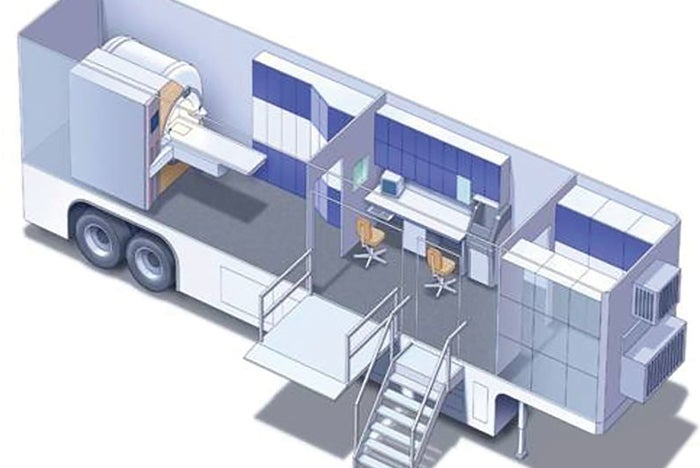Mobile-unit revisions bring clarity to manufacturers
The 2018 Facility Guidelines Institute (FGI) Guidelines bases requirements for mobile units on the type of services provided in the units — a timely and welcome development. In the current health care environment, hospitals are seeking to add services and capacity, reach growing patient populations and provide interim solutions for renovation, among other health care goals. As a result, mobile units are being used more often for diagnostic, outpatient and procedural services as well as for such support services as food service and sterile processing.
Although patient safety always has been an overarching concern in the use of mobile units, until now, few specific standards were available to ensure compliance and consistency in the design, installation and use of mobile facilities. Fortunately, the Guidelines now acknowledges that various levels of patient care and services are being performed in these temporary units and that they need to be definitively regulated.
The enhanced FGI guidance establishes standards that manufacturers can follow to design, build and install safe mobile spaces. The new Class 1 and Class 2 designations recognize that mobile units require flexibility and at the same time apply the rules from permanent facilities, enabling stakeholders to comply with realistic guidance. These specifications also help manufacturers meet requirements by addressing the design and construction of mobile units before they arrive on-site, saving time, work and costs.
FGI has established a baseline for mobile-unit standards that helps manufacturers, hospitals and authorities having jurisdiction (AHJs) understand that mobile solutions need to conform to the same safety standards expected in traditional buildings. This helps manufacturers set and achieve new industry benchmarks. It also provides health care organizations with a consistent, compliance-driven way to evaluate and compare mobile products, providing a path to installation compliance with AHJs.
Finally, it enables all stakeholders to focus together on the primary goal — patient safety.
Mark Munroe, vice president of strategic projects and mobile solutions at Steris Corp., Mentor, Ohio.





